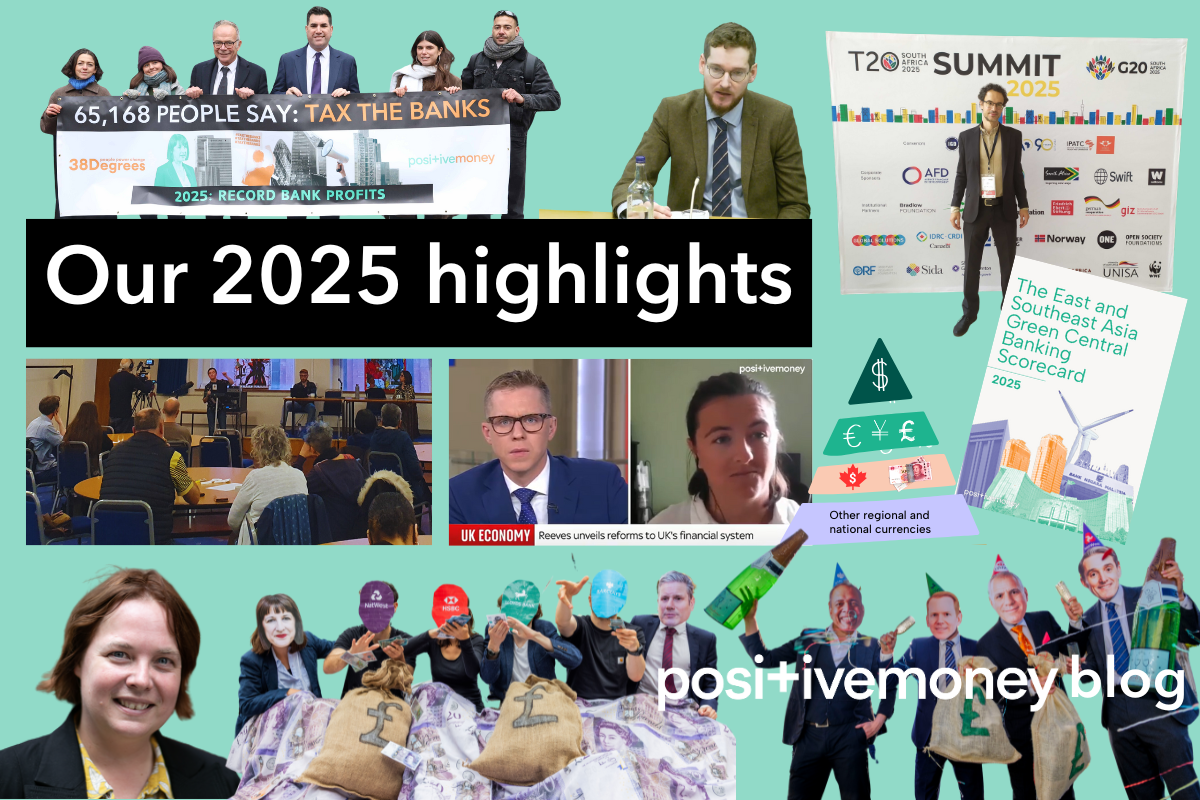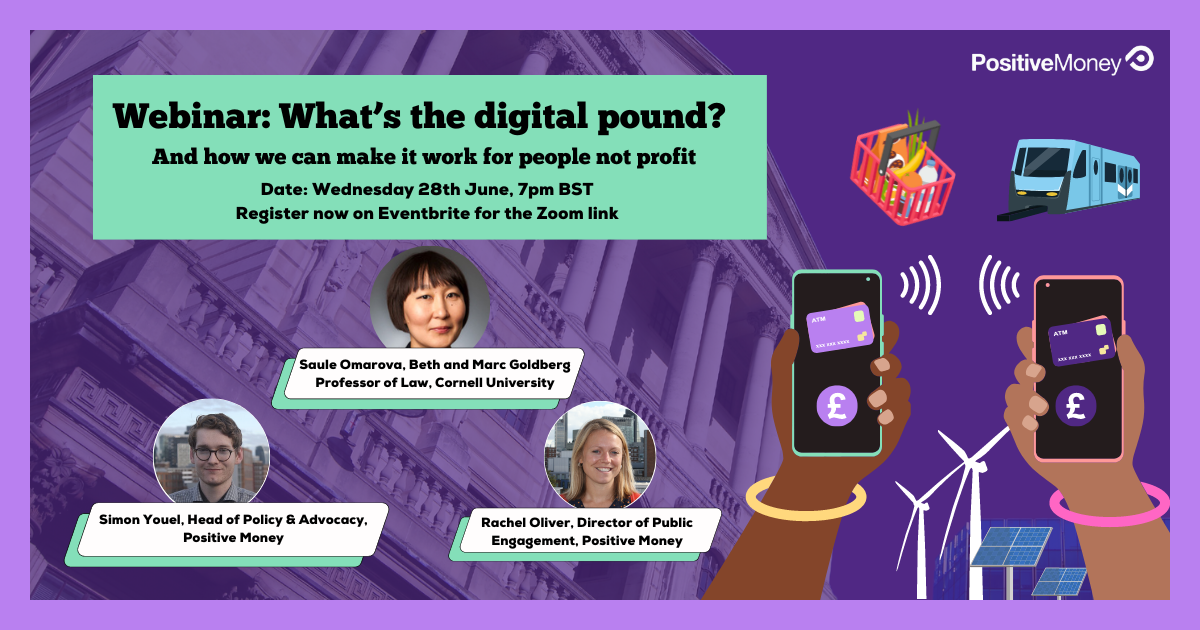
Finance and DemocracyUK
18 December 2025
July 17, 2023
Catch up on our webinar from 28th June: ‘What’s the digital pound? and how we can make it work for people not profit’.
While central banks all over the world, including the Bank of England, look into launching digital currencies (a digital version of cash issued by central banks) there are currently more questions than answers. Who will control it? Who will have access to it? How’s it different from existing fintech or bitcoin? What are the risks and opportunities for financially excluded groups, and what will it mean for inequality, and our democracy?
As the government and Bank of England’s recent public consultation on the issue drew to a close at the end of June, we ran a webinar to address as many of these questions as we could. We were thrilled to be joined by Saule Omarova, a leading thinker on digital currencies and Professor of Law at Cornell University US. Positive Money’s Head of Policy, Simon Youel presented too, while our Director of Public Engagement, Rachel Oliver, hosted and talked the audience through how to respond to the consultation. You can now watch the recording below.
For further reading on the links mentioned; read Simon’s blog on the opportunities a digital pound presents to stop the privatisation of money, and check out Saule’s paper on the People’s Ledger.
We were delighted to welcome over 130 attendees, from Cornwall and Edinburgh to Canada and the Netherlands. Professor Omarova and the Positive Money team gave presentations on how sovereign digital currencies could democratise the financial system and what a digital pound would look like in the UK. This was followed by a lively discussion in the Zoom chat, and a subsequent Q&A section. Concerns were raised over viability, what tech would be required, as well as the current low level of awareness amongst politicians, the public and the press. Attendees also made suggestions, such as involving social media influencers to help spread the word. While the issue of current levels of the public’s trust in the Bank of England was also raised, given recent interest rates rises; both the unequal impact they’re having and the tone-deaf nature of some Bank officials commentary, on what impact that might have on the Bank’s future educational outreach.
It was exciting to see so many people engaging with the topic and we hope to run more events potentially on- and offline in the future, to help push for much deeper public education and empowerment. Positive Money believes the arrival of a digital pound presents both big risks and opportunities relating to democratising our money system.
By the time the consultation closed, more than 1,400 people had used our template email to respond to it – not including submissions made via form or sent in the post. For the Bank of England’s last consultation in 2021, Positive Money also helped thousands of supporters contact the Bank of England and they publicly welcomed “the strength of engagement on this topic”. So it was great to see so many people seize the opportunity to make our voices heard together again, when it’s clear that the big banks and lobbyists from private companies will have made their voices heard too.
Alongside our public mobilisation campaign, Positive Money also submitted an organisational response to the consultation, and organised a joint statement with the support of 34 leading thinkers from civil society and academia. No matter the format or audience, all our work on the digital pound continues to make the case for three core principles to be at the heart of any digital pound’s design:
Financial inclusion
Public ownership and access, and
Individual privacy
Running alongside cash, we believe a digital pound is our chance to break free from the big banks and democratise money to keep it in public hands. That’s why we’ll do our best to centre the public in these conversations, and to push the government and Bank of England to do the same.
If you haven’t yet, sign up to our mailing list to receive regular updates across our work fighting for a better money and banking system.
